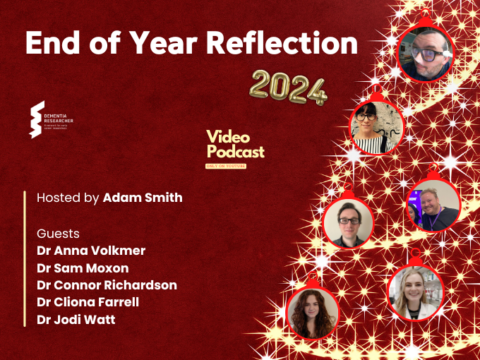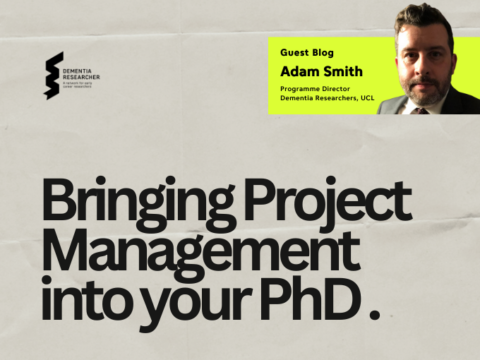Keeping a research journal might sound like something reserved for the overly organised or the particularly sentimental, but let me tell you—it’s one of the most practical and underestimated tools in your research arsenal. It’s a place where your day’s efforts, however small, are captured. It’s not a to-do list of things yet to be accomplished but a “done list,” where even the tiniest achievements get their due credit.
So, what exactly is a research journal?
It’s whatever you want it to be. There’s no hard-and-fast rule. You can be as detailed or as brief as you like, and you’re the only one setting the agenda. It can be a space where you track what you did each day, note what you didn’t manage to get around to, and reflect on what went well or what could’ve been better. Did you read an interesting article? Or have a meeting that didn’t quite go as planned? Why was that? What could you do differently next time? You get the idea.
Why bother with it?
Let’s start with the obvious: record-keeping. When you’re deep in research mode, it’s easy to lose sight of the smaller wins—like fixing that pesky bug in your code or finally understanding that statistical method that’s been haunting you. Having a daily log helps you to see progress in real-time, no matter how incremental. And honestly, research often feels more like a marathon than a sprint, so flipping through a journal can serve as a reminder that, yes, you’re moving forward.
I like to think of it as the anti-to-do list. Instead of fixating on what’s left undone, my journal is a celebration of what I’ve managed to tick off. It’s a mindset shift—what have I done today instead of what’s still looming? When you frame it that way, suddenly the day doesn’t feel like such an uphill battle.
The emotional side of research
Research isn’t just a mechanical process; it’s an emotional one. Some days, the work will bore you to tears; other days, it will light a fire in your brain. Your journal is a space to process all of this. Ask yourself: does this part of my research excite me or drain me? Did I stumble across something that reignited my passion for the topic, or maybe had a conversation that shifted my perspective? These reflections are crucial in a field where it’s easy to lose the forest for the trees.
And let’s face it—some days are just plain frustrating. Whether it’s an experiment gone wrong or a collaboration that’s not quite clicking, writing it out at the end of the day helps to cleanse the mental slate. Vent out your frustrations on paper, so you don’t carry them into tomorrow. It’s cathartic, and you’ll thank yourself when you come back with fresh eyes.
Keeping the writing muscle strong
Here’s a little secret: one of the hardest parts of academic work is staring down a blank page. That terror of the blinking cursor when you’re trying to start a paper draft? I’ve been there. But here’s where your journal can help. By committing to write daily—even just a few sentences—you stay in the rhythm of writing. You keep the muscle memory alive, and when it comes time to draft that paper, the blank page won’t feel so hostile.
The personal side of research
For many of us, research is more than just a job; it’s personal. It’s tied to how we see ourselves and how we measure our worth. A research journal allows you to capture the story of your work from a deeply personal angle. It’s more than just a record of publications or achievements—it’s a reflection of the struggles, the learning curves, the hard days, and the breakthroughs. I like knowing that when I look back, there’s a record not just of what I’ve accomplished, but how I’ve grown, both as a researcher and as a person.
Journaling for teaching and mentoring
Surprisingly, keeping a journal has also made me a better mentor and teacher. By reflecting on my own ups and downs, I’ve become more attuned to the challenges my students might face. I find myself more aware of when they need extra guidance or when they’re ready for more independence. It’s like I’m more in tune with the learning process because I’ve spent time being mindful of my own.
So, what’s the takeaway?
Journaling isn’t just for the introspective or the excessively organised. It’s a tool for anyone looking to get a better handle on their research and themselves. So why not give it a go? Grab your pen, keyboard, or whatever writing tool you favour, and just start writing.

Dr Connor Richardson
Author
Dr Connor Richardson is a Neuro-epidemiology Research Associate in the Newcastle University Population Health Sciences Institute. Connor is the research statistician for the Cognitive Function and Ageing studies (CFAS) multi-centre population cohort. His research interest lies in using advanced statistical modelling and machine learning to measure dementia risk. Connor blogs about his research, Equality, Diversity and Inclusion and sometimes his Pomapoo’s.

 Print This Post
Print This Post






